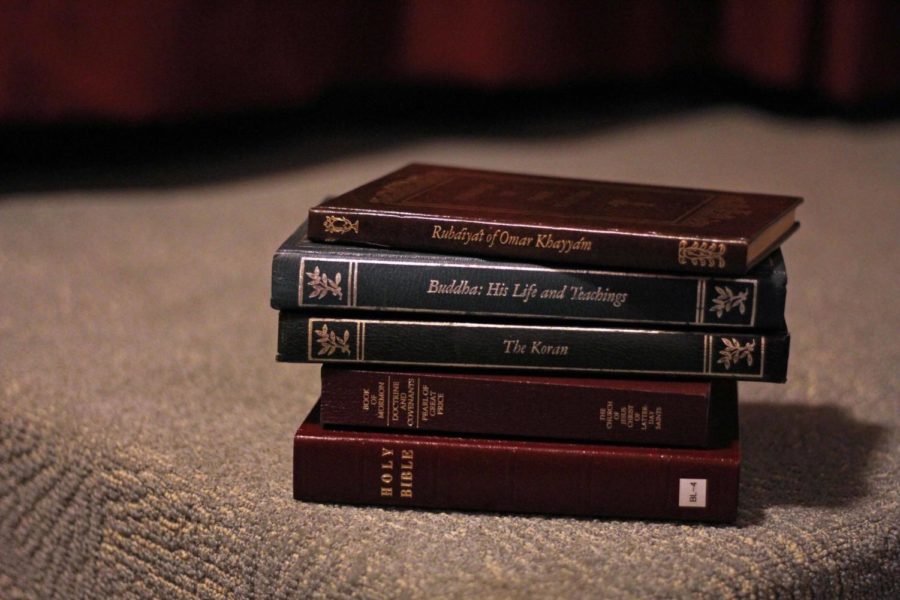Editorial: Start healthy dialogue on religion
Hannah Olson / Iowa State Daily
Religious books from various world religions available to students in the chapel in the Memorial Union.
September 26, 2017
At least once a semester, Christian evangelists descend on campus to hand out copies of the New Testament to anyone who passes. The intent is to convert students so that they may become followers of Christ. However, just think, how would reactions differ if a group of people distributed the Quran? The Book of Mormon? The Tanakh?
There is value in sharing religious beliefs openly and freely. The First Amendment guarantees the freedom to practice one’s religion along with the right to assemble and distribute religious materials. Allowing this freedom of expression on campus creates a more inclusive atmosphere where people are able to share their religious values and a certain part of their identity. It is important to note that freedom of religion also includes freedom from religion for those who do not hold religious beliefs.
It goes beyond freedoms and rights. Sharing religious ideals and customs conveys culture and a sense of personal identity. However, for some groups of people, practicing and sharing their religion is fraught with difficulties.
A recent poll of U.S. Muslims by the Pew Research Center found that 75 percent of respondents agree that “there [is] a lot of discrimination against Muslims in the U.S.” Half believe that being Muslim in the U.S. has gotten more difficult in recent years.
Another Pew Research poll asked participants to rate their feelings for religious groups through a “feeling thermometer” ranging from 0-100. The poll found that Americans are “feeling warmer” about a variety of religious groups including Muslims who rose from 40 degrees in June 2014 to 48 degrees in January 2017. However, a rating of 48 is far below the rating of 61 for Evangelical Christians in the same study.
It should be the intent of every student on campus that all fellow students feel safe and are able to practice their religion. Individuals can choose when to engage with preachers on campus, but should be respectful and have a willingness to understand an unfamiliar perspective.
You don’t have to defend your religion against someone else’s belief. Nor do you have to discredit someone’s religious beliefs in order to raise your own. Simply starting a dialogue about the differences and similarities of your personal beliefs and recognizing that each person has the right to believe what they want will help make our communities more inclusive and understanding of one another.
















